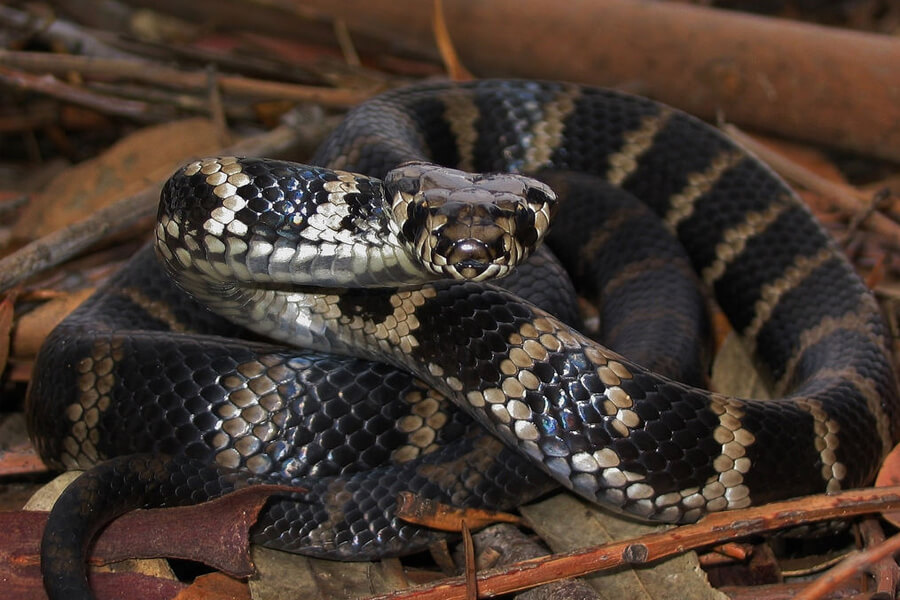Introduction
When it pertains to poisonous snakes, Australia is home to a few of the most fascinating and dangerous varieties worldwide. Amongst these, the Tiger Snake stands out not only for its powerful poison yet additionally for its fascinating behavior. Understanding the habits of venomous snakes like the Tiger Serpent is essential for both wild animals fanatics and those residing in locations where these snakes exist. This short article explores different facets of Tiger Snake actions, environment, identification, safety measures, and emergency treatment methods in instance of a serpent bite.

Understanding the Habits of Venomous Snakes Like the Tiger Snake
The Tiger Snake, clinically referred to as Notechis scutatus, is infamous for its aggressive nature when intimidated. These serpents display a variety of behaviors that can be quite various from their non-venomous equivalents.
Characteristics of Tiger Snakes
The Tiger Snake is conveniently identifiable because of its distinctive bands or red stripes that appear like a tiger's markings. They can differ in color from yellowish-brown to dark olive or black. This pigmentation serves not only as camouflage yet additionally as a caution signal to possible predators.
Adaptability to Environment
One amazing element of their actions is their flexibility to numerous atmospheres. Found primarily in seaside areas, marshes, and wetlands across Australia and Tasmania, they can prosper in diverse habitats consisting of urban locations.
Hunting Techniques
Tiger Snakes are ambush killers largely preying on fish, frogs, and little creatures. They possess eager sight and an intense sense of smell which assists them in locating target effectively.


Venom Composition
Their poison consists of neurotoxins that impact the nerves, causing paralysis or death in smaller pets. For human beings, instant clinical focus is essential after a tiger snake bite due to its possibly deadly effects.
Natural Environment of Tiger Snakes
Preferred Locations
Understanding where these snakes live sheds light on their behavior patterns. The tiger serpent habitat consists of:
- Coastal regions Swamps Grasslands Urban areas with plentiful water sources
Seasonal Movements
During warmer months, Tiger Snakes are Infection Control more Get more info active as they indulge in sunlight or search for food. In contrast, cooler months see them retreating into hibernation sites.
Are Tiger Snakes Venomous?
Yes! The question "are tiger serpents poisonous?" frequently arises among those unfamiliar with this types. Their venom is taken into consideration one of the deadliest amongst all serpent species worldwide.
Symptoms of a Tiger Snake Bite
If bitten by a tiger snake, symptoms might consist of:
- Localized pain Swelling at the bite site Nausea and vomiting Sweating and confusion
Immediate medical help is important as without treatment attacks can lead to severe health complications or even death.
First Aid for Serpent Bites: Quick Action Guide
Knowing just how to carry out first aid for a snake bite could conserve somebody's life. Below's what you should do:
Step 1: Remain Calm
Keeping calmness aids decrease heart rate which reduces poison spread.
Step 2: Immobilize the Influenced Area
Keep the influenced limb still and listed below heart degree if possible.
Step 3: Call Emergency Situation Services
Always look for professional medical aid instantly after a serpent bite.
First Aid for Snake Bite Kit Essentials
A well-appointed snake bite first aid kit must include:
- A compression bandage Antiseptic wipes A set of scissors A cold pack
Safety Preventative measures: Avoiding Serpent Bites in Australia
Awareness Programs
Educating areas regarding neighborhood snake varieties and their behaviors can significantly lower encounters leading to bites.
Avoiding Dangerous Areas
Staying away from lengthy yard during warmer months decreases contact with serpents that might be relaxing or hunting.
Common Misconceptions About Tiger Snakes
Many people believe misunderstandings regarding the actions of tiger serpents bring about unnecessary anxiety. Right here are some information:
Myth 1: All Tigers Are Aggressive
Not all tiger serpents will present aggression if left uninterrupted; several favor running away instead of confrontation.
Myth 2: They Chase Humans
Tiger snakes do not proactively go after people; they may strike when they really feel Limb immobilization endangered but will usually pull back if provided space.
Conservation Initiatives Related to Venomous Snakes
Conservation efforts focus on informing areas concerning shielding local wildlife while minimizing human-snake interactions.
Importance of Ecosystems
Understanding that venomous snakes play an important function in preserving environmental balance assists foster admiration instead of anxiety in the direction of them.
FAQs Concerning Tiger Snakes
What needs to I do if I come across a tiger snake?- Maintain range and slowly retreat without sudden movements.
- While bites aren't extremely usual as a result of awareness initiatives, they still take place yearly within Australia.
- Baby tiger snakes can deliver full doses of venom in spite of being smaller; hence caution is encouraged around them.
- They largely take in frogs, fish, tiny creatures like rats, and other reptiles.
- It's prohibited in many jurisdictions without correct licensing as a result of safety and security issues concerning their venom.
- Wear tough boots and stay on significant tracks; appearance before positioning hands or feet right into concealed spaces like rocks or logs.
Conclusion
Understanding the behavior of venomous snakes like the Tiger Snake not just enhances our expertise yet additionally promotes safety and security awareness among those living near their environments. From identifying their qualities, comprehending emergency treatment methods following a bite, through engaging preservation initiatives-- every facet plays a crucial function in promoting conjunction with these remarkable reptiles while respecting their area within our ecosystem.
As we deepen our understanding with education and experience, we add favorably towards guaranteeing both human safety and wildlife preservation-- profiting all celebrations involved!